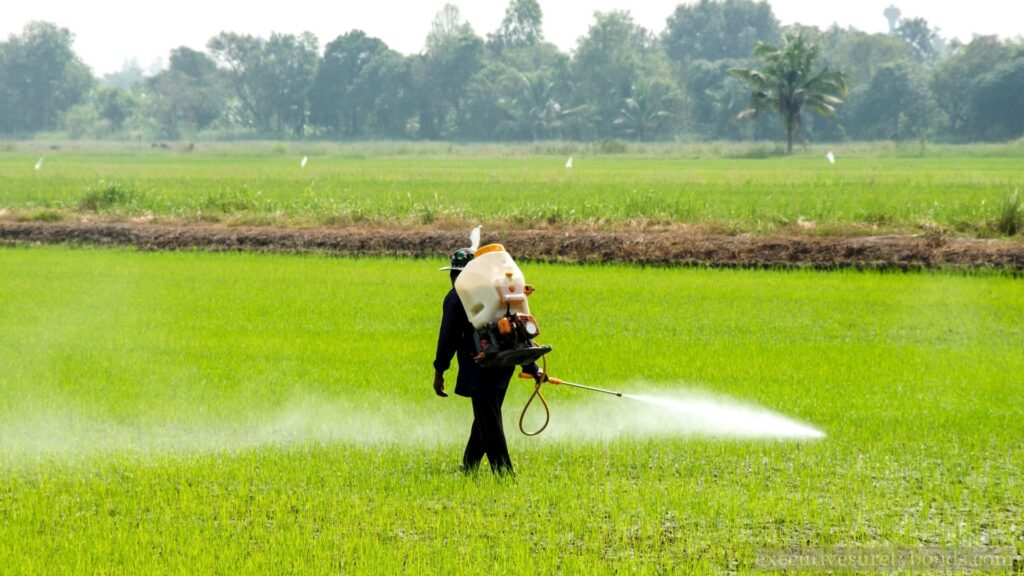Get An Instant Quote on Kansas – Pesticide Business License Bond Now
Introduction
In the realm of agriculture and environmental stewardship, the Kansas Pesticide Business License Bond stands as a shield of accountability and responsibility. Pesticide businesses play a vital role in managing pests and protecting crops, but this role comes with significant responsibilities. To ensure these businesses adhere to the highest standards of safety and environmental protection, the State of Kansas mandates the Pesticide Business License Bond, a financial commitment valued at $10,000. This bond serves as a promise to the state and the public that pesticide businesses will operate ethically, following regulations, and safeguarding the environment. In this article, we will delve into the significance of the Kansas Pesticide Business License Bond, its purpose, and its impact on agriculture and the environment in the state.
The Role of Pesticide Businesses in Kansas
Pesticide businesses in Kansas are more than just suppliers; they are the protectors of crops and guardians of the environment. They provide essential products and services to manage pests and ensure the productivity of agricultural enterprises. However, with this critical role comes a responsibility to protect the environment, human health, and safety.
The Kansas Pesticide Business License Bond
At the heart of responsible pesticide management in Kansas lies the Kansas Pesticide Business License Bond. This bond is more than a regulatory requirement; it is a testament to a business’s commitment to ethical practices and environmental protection.
Understanding the Mechanics of the Bond
When an entity seeks a pesticide business license in Kansas, they are typically required to secure the Kansas Pesticide Business License Bond. This bond creates a binding agreement between the business, the state, and a surety company. The surety company serves as a financial guarantor, assuring the state that the business will operate in compliance with state pesticide regulations, handle pesticides responsibly, and safeguard the environment.
Implications for Pesticide Businesses
For pesticide businesses in Kansas, obtaining the Kansas Pesticide Business License Bond signifies a commitment to environmental stewardship, safety, and regulatory compliance. It ensures that they adhere to state regulations, store and handle pesticides responsibly, and protect both human health and the environment.
Furthermore, the bond enhances trust and confidence among state authorities and the public. It signifies that pesticide businesses are financially responsible and dedicated to upholding the highest standards of safety and environmental protection.
Preserving Agriculture and the Environment
The primary purpose of the Kansas Pesticide Business License Bond is to preserve agriculture and protect the environment. By ensuring that pesticide businesses operate ethically and in compliance with state regulations, the bond plays a crucial role in safeguarding the health of agricultural crops, the welfare of farmers, and the integrity of the environment. It contributes to responsible pesticide management and environmental conservation.
Conclusion
In the world of agriculture and environmental protection in Kansas, the Kansas Pesticide Business License Bond is not just a legal requirement; it’s a vital tool for fostering trust and upholding ethical standards. Pesticide businesses, state authorities, farmers, and environmental advocates all benefit from the protections and assurances offered by this bond. By enforcing compliance with regulations and promoting responsible pesticide management, the bond plays a pivotal role in ensuring that Kansas remains a fertile and environmentally sound state for agriculture and beyond.
Frequently Asked Questions
Can Pesticide Businesses Use the Bond to Cover Costs Associated with Environmental Cleanup or Remediation in the Event of a Pesticide-Related Contamination Incident?
No, the Kansas Pesticide Business License Bond is not intended to cover costs associated with environmental cleanup or remediation resulting from a pesticide-related contamination incident. This bond primarily serves as a financial guarantee to ensure that pesticide businesses comply with state regulations and handle pesticides responsibly. Environmental cleanup and remediation costs are typically addressed through other means, such as liability insurance or specific environmental remediation funds. The bond’s purpose is to promote responsible pesticide management and ethical business practices rather than provide financial protection for environmental cleanup.
Are There Different Bond Amounts for Pesticide Businesses Based on the Types or Quantities of Pesticides They Handle or the Scope of Their Operations?
In Kansas, the bond amount for a Pesticide Business License is typically standardized at $10,000, regardless of the types or quantities of pesticides handled or the scope of the business’s operations. The bond amount remains consistent for all pesticide businesses seeking licensure within the state. While businesses may have variations in the scale and scope of their pesticide-related activities, the bond amount is designed to serve as a general financial assurance of compliance with state regulations and responsible pesticide management practices.
If a Pesticide Business Also Engages in Other Agricultural Services or Products Beyond Pesticides, Does the Kansas Pesticide Business License Bond Still Apply?
The Kansas Pesticide Business License Bond primarily applies to businesses engaged in the distribution and sale of pesticides. If a business offers additional agricultural services or products beyond pesticides, the bond still applies as long as they are involved in pesticide-related activities that require licensure. However, for other non-pesticide-related agricultural services or products, separate licenses or bonds may be required based on the specific nature of those activities. Businesses should consult with state authorities to ensure compliance with all applicable licensing and bonding requirements.


